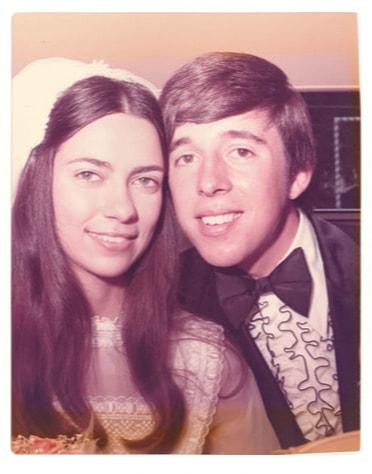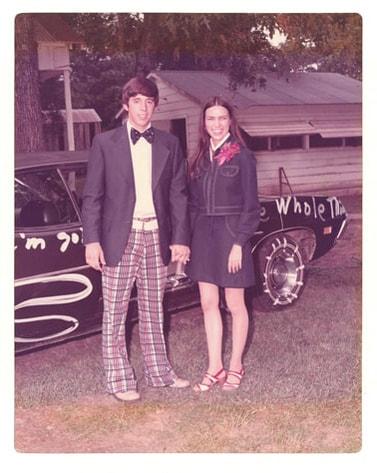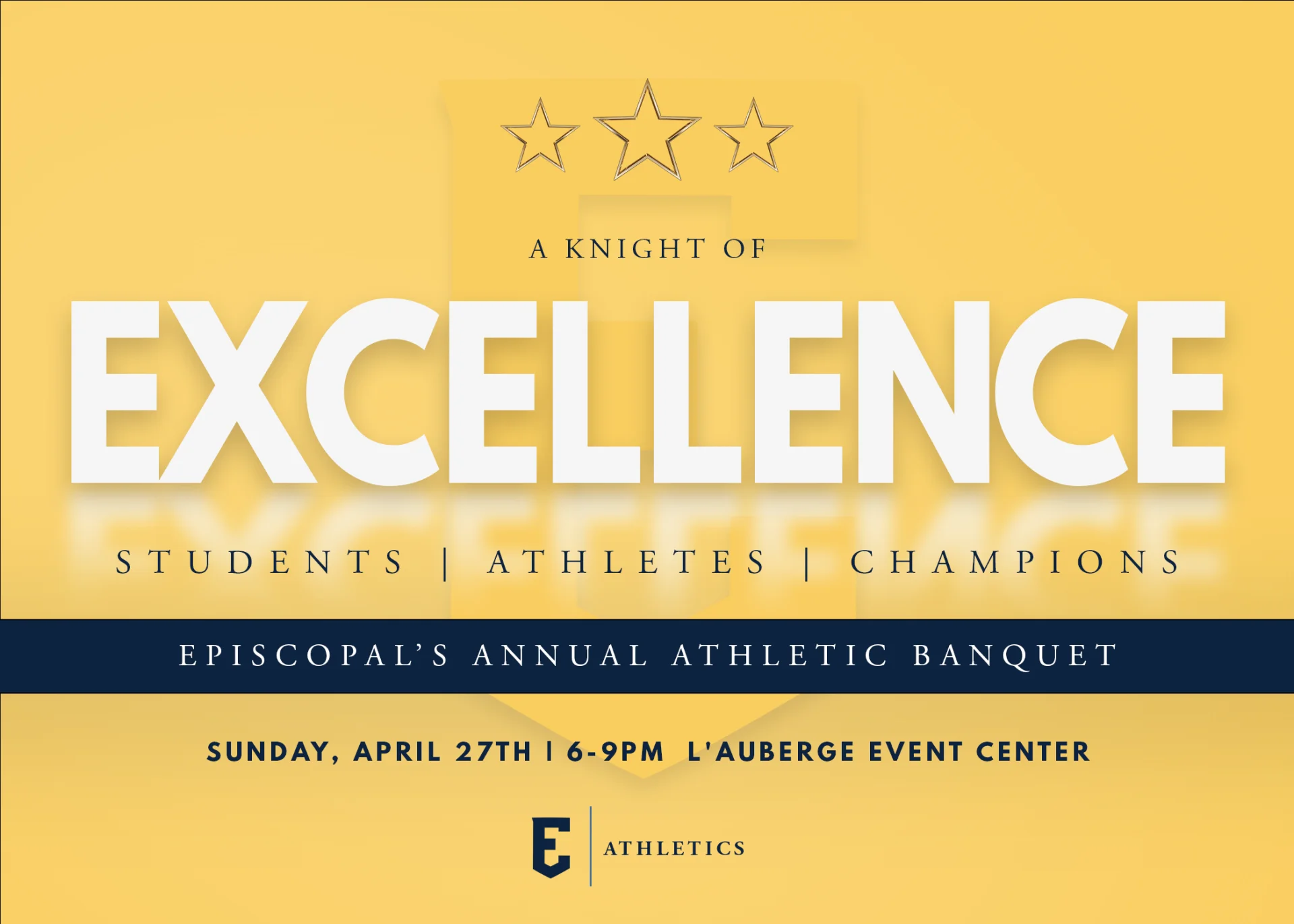- Admission
- Discover Episcopal
- Our Program
- Athletics
- Arts
- Spirituality
- Student Life
- Support Episcopal
- Alumni
- Parent Support
- Knightly News
- Contact Us
- Calendar
- School Store
- Lunch Menu
- Summer Camps
- Knight Under the Stars
- Chicago Tickets
- PowerSchool Notice
« Back
Claney Duplechin: Character-Focused Coaching
December 20th, 2017

“You’re going to change starting now.” Claney Duplechin was a sophomore in high school when he received a directive so frank and serious and non-negotiable. It was one of those moments that you catalogue for a lifetime so that you can access it over and over. “You’re going to change starting now.”
Imagine Coach Dupe 50 years ago: sturdy frame, crew cut, same crescent-moon brow. “You look the same!” I say as he hands me a blue scrapbook filled with newspaper clippings from the late 60s and early 70s.
“Why do people always say that?” he asks.
Claney has conjured that moment many times. “I was sitting in Geometry,” he remembers. “Cutting up as usual. I didn’t care about academics. ‘You’re going to change starting now,’ he said to me. And I did.”
 Claney is from deep within Cajun country--where Mardi Gras is less beads and Bourbon Street and more Courir, the horse-led parade from house to house, gathering ingredients, including a live chicken, for the community gumbo. He’s from a place where French is passed down between generations and two-stepping across sawdust dance hall floors to accordion-heavy swamp pop is Friday night. Claney is from 200 acres of farmland and from a father with a third grade education who farmed, tended the local bar, and drove a school bus. He’s from the sort of town that celebrates your grandfather’s prized eight pound winter radish in the local paper.
Claney is from deep within Cajun country--where Mardi Gras is less beads and Bourbon Street and more Courir, the horse-led parade from house to house, gathering ingredients, including a live chicken, for the community gumbo. He’s from a place where French is passed down between generations and two-stepping across sawdust dance hall floors to accordion-heavy swamp pop is Friday night. Claney is from 200 acres of farmland and from a father with a third grade education who farmed, tended the local bar, and drove a school bus. He’s from the sort of town that celebrates your grandfather’s prized eight pound winter radish in the local paper.
When he was a sophomore, Claney was a star in athletics but not in the classroom--he didn’t see any need to be a strong student. His plan was to graduate high school, stay home, farm. But Claney says that vision changed when his Geometry teacher, who was also his football coach, offered an alternative vision. “He knew me better than I knew myself,” he says. So when Coach Aucoin offered this instruction, “You’re going to change starting now,” and when Claney met Phyllis, the future valedictorian of Mamou High School whom he eventually married, everything changed. Claney started to value his coursework and looked ahead to college.


Many of us who choose to work in education have the ongoing opportunity to recall these sorts of pivotal people and moments. The weight of a single interaction or ongoing mentorship from our own past can play on repeat as we try to replicate that connection with our own students. And as the most tenured faculty member at Episcopal, Claney has had 39 years to honor the influence Coach Aucoin had on him.
Coach Dupe’s accolades are no secret in our community or around the state and country for that matter. But even for a gregarious guy, this sort of public recognition makes Claney uncomfortable. The sum of his success adds up like this: 22 consecutive state cross country titles (second best consecutive record in the US), 49 total state titles (30 cross country; 19 track), 18 state coach-of-the-year awards, two national coach-of-the-year awards, one dedicated and named running trail on campus, and countless newspaper clippings that began way back in his athlete-days some 50 years ago.
 But rehashing these accomplishments bothers Claney--annoys him, even. Claney is uncomfortable with all the fuss because keeping his team’s collective ego in check is really central to his approach. We’ve all heard it--Go Knights, good people, have fun, state champs!--the familiar adage from every practice and meet breakout, every team email signature. But when Claney began coaching cross country at Episcopal over three decades ago, the pieces were ordered a bit differently: Go Knights, state champs, have fun, good people. He kept this order for the first ten years coaching cross country, and there were state championships, to be sure.
But rehashing these accomplishments bothers Claney--annoys him, even. Claney is uncomfortable with all the fuss because keeping his team’s collective ego in check is really central to his approach. We’ve all heard it--Go Knights, good people, have fun, state champs!--the familiar adage from every practice and meet breakout, every team email signature. But when Claney began coaching cross country at Episcopal over three decades ago, the pieces were ordered a bit differently: Go Knights, state champs, have fun, good people. He kept this order for the first ten years coaching cross country, and there were state championships, to be sure.
But, something about this order felt off to Coach Dupe. To him, character and community come before competition. So, he changed it. Good people, acting with discipline and integrity, valuing their teammates, behaving with humility--these must come first. “Good people,” he says, “will do the things that need to be done to condition and become state champs.”
In fact, a year before the motto-change, Coach Dupe’s resolve was challenged. His top runner who would have easily led the team to victory cheated on a test just before the state meet. He was suspended from school temporarily. Claney knew that choosing to bench the student would be hard on the team but says, “I didn’t care if it was the state meet. We had to stand our ground.” The team didn’t win that year. Next season, Claney’s emphasis on character became central to his coaching. “That’s where it started,” he says.
And so from that point forward, the program earned title after title without skipping a beat. “We have no secrets,” he explains. “It’s not about the workouts. I’ll share any workouts with anyone who wants them.” But he notes that when the athletes themselves take ownership of the program, when the senior captains act as assistant coaches--that’s powerful and that’s what sustains a solid program.
Ten years ago, Claney wrote Coach Aucoin a letter thanking him for the impact he had on the trajectory of his life. In the letter, he told him this: “You changed my life. I wouldn’t have gone to college if it weren’t for you. I’m coaching now the way you coached me.” Claney says that even little things Aucoin would do--his mannerisms, the way he presented himself--became material for Claney to study and adopt over the years.
After Claney sent the letter, Aucoin was diagnosed with emphysema and died a year later. Claney made it to the wake and later learned that one of Aucoin’s son’s read part of Claney’s letter during his eulogy.
“You are still coaching through me,” Claney wrote to Aucoin.
For the second most-consistently-winning cross country coach in the country, Claney has every right to swell with pride and rehash every gloriously earned win over the past 22 years. But, he’d really rather not. When we spoke, the swells of pride and gratitude came when Claney described the influence of his coach, when he remembered, fondly, students who’ve inspired him, when he celebrates who those students have become.
“The impact you have on people,” Claney says, “that’s more important than wearing or doing anything fancy, more important than money and wealth. I try to model that.”
Katie Sutcliffe
Katie Sutcliffe has served in many capacities involving writing and service learning over the last six years at Episcopal. Currently, she directs the Thesis Program, teaching both Seminar juniors and Thesis seniors, and is the co-creator of LAUNCH, Episcopal’s annual TEDx-style student-planned and executed showcase of ideas and projects. Katie’s own history involves this blend of service and writing: after graduating from a small liberal arts college in Indiana with an English degree, she moved to the Deep South with Teach For America where she taught middle school English and worked passionately on issues of educational inequity. She later earned an MFA in creative nonfiction writing from the University of Pittsburgh and returned to Baton Rouge where she has continued freelance writing. Katie infuses social justice initiatives into her curricula and seeks to help her students make meaningful connections with those living a different experience within our larger community. She’s passionate about character education and project-based learning, as well as research and writing that have practical implications for understanding and addressing real world challenges.
The Episcopal School of Baton Rouge 2025-2026 application is now available! For more information on the application process, to schedule a tour, or learn more about the private school, contact us at [email protected] or 225-755-2685.
Other articles to consider
 Mar27Episcopal Presents "Chicago: Teen Edition"
Mar27Episcopal Presents "Chicago: Teen Edition"Don’t miss the Upper School spring musical “Chicago: Teen Edition”! With dancing, singing, a true crime theme and a 12-piece professional orchestra, this PG-13 presentation is sure to impress. Shows run April 3-6—get your tickets today!
See Details Mar27Episcopal Announces "The Knight of Excellence" Athletic Banquet
Mar27Episcopal Announces "The Knight of Excellence" Athletic BanquetCelebrate Episcopal's top athletes at the Knight of Excellence on April 27th! Join us for an inspiring evening of awards, recognition and community.
See Details Mar26College Announcements 3.28.25
Mar26College Announcements 3.28.25Please join us in congratulating members of the Class of 2025 as they announce their college enrollment decisions.
See Details Mar25A Community of Learners Takes the Stage at LAUNCH Day 2025
Mar25A Community of Learners Takes the Stage at LAUNCH Day 2025LAUNCH Day 2025 celebrated student-driven research, innovation and a close-knit community of learners. See how seniors showcased their hard work, creativity and big ideas on stage.
See Details
Categories
- All
- Admission
- Athletics
- College Bound 2019
- College Bound 2020
- College Bound 2021
- College Bound 2022
- College Bound 2023
- College Bound 2024
- College Bound 2025
- Counselors Corner
- Episcopal Alumni
- Giving
- Head Of School
- Lower School
- Middle School
- Spirituality And Service
- Student Work
- The Teachers' Lounge
- Upper School
- Visual And Performing Arts
Recent Articles
- 03/27/25Episcopal Presents "Chicago: Teen Edition"
- 03/27/25Episcopal Announces "The Knight of Excellence" Athletic Banquet
- 03/26/25College Announcements 3.28.25
- 03/25/25A Community of Learners Takes the Stage at LAUNCH Day 2025
- 03/24/25Congratulations to the 2025 Newton Distinguished Faculty Award Honorees!
- 03/21/25College Announcements 3.21.25
- 03/21/25Chase Cresson to Play Football at Morehead State University
- 03/20/25Anna Kate Yale to Compete at Harding University
- 03/13/25From Museums to READBowl: Episcopal Students Embrace the Joy of Learning
- 03/13/25Expanding Academic Support: ARC Fellows Mentor Lower School Students











